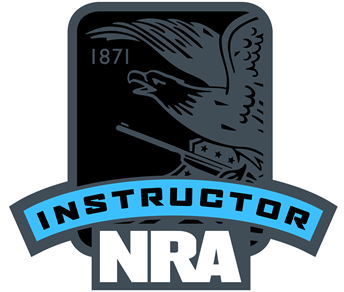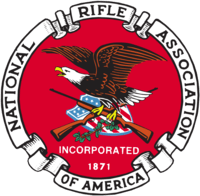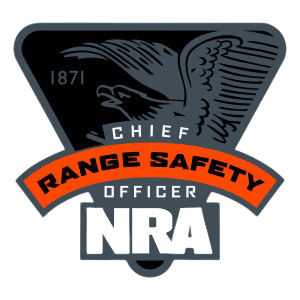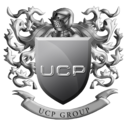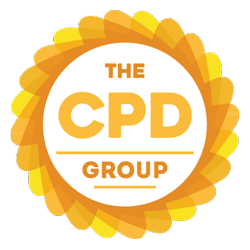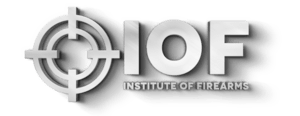ProQaul Level 4 Diploma in Intelligence Operations
Dates
Any time of the month
Length
14 Days
Price
$7450
Location
USA, UK, Thailand, Lebanon, Sri Lanka, Spain, Italy and singapore

Introduction
The Level 4 Diploma in Intelligence Operations will aid the development of strong analytical and presentation skills which are required for work in Intelligence Operations, which involves comprehensively collecting and collating data from a wide range of sources in order to provide detailed assessments.
The awarding body for this qualification is ProQual Awarding Body and the regulatory body is the Office of Qualifications and Examinations Regulation (Ofqual). The specification for this qualifications has been approved by the Council for the Curriculum Examinations and Assessment (CCEA) for use by centres in Northern Ireland.
This qualification has been accredited onto the Regulated Qualifications Framework (RQF)
Entry Requirements
There are no formal entry requirements for this qualification. Centres should carry out an initial assessment of candidate skills and knowledge to identify any gaps and help plan the assessment. This qualification is approved for candidates aged 19+
Qualification Structure
Candidates must complete all of the Mandatory units.
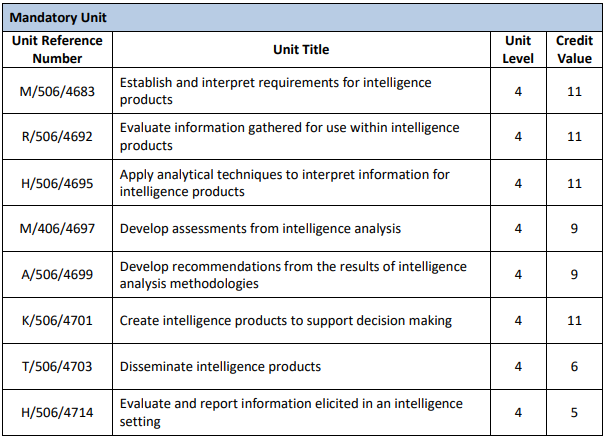
Assessment
Candidates must demonstrate the level of knowledge described in the unit. Assessment is the process of measuring a candidate’s knowledge and understanding against the standards set in the qualification.
Each candidate is required to produce evidence which demonstrates their achievement of all of the learning outcomes and assessment criteria for each unit.
Learning outcomes set out what a candidate is expected to know, understand or be able to do.
Assessment criteria specify the standard a candidate must meet to show the learning outcome has been achieved.
Evidence can include:
- assignments/projects/reports
- worksheets
- portfolio of evidence
- record of oral and written questioning
- Recognition of Prior Learning
- candidate test papers
Learning Outcomes and Assessment Criteria
Ofqual Qualification Number
601/4295/9
Level
4
Total Qualification Time
730 hours
Guided learning hours
260 hours
Assessment
Pass Or Fail Assessed And Verified By Centre Staff External Quality Assurance By ProQual Verifiers Qualification



